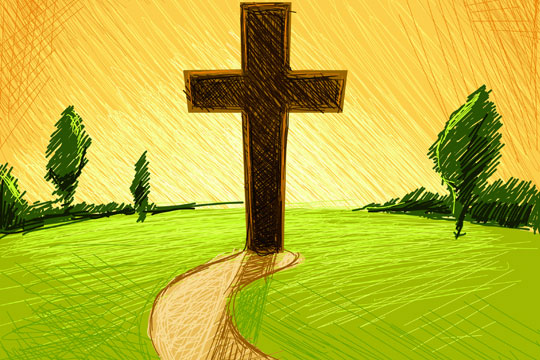
A recent class discussion showed the importance of building trust over time, which allows young people to feel free to ask hard questions. We were talking about the miracles of Jesus (Finding God, Grade 7, Chapter 12) and how they showed his love and respect for all people. That led to a discussion on how we are also called to respect the dignity of all life according to Christ’s example and Catholic social teaching.
The young people raised a number of the questions one might expect, mostly in the form of trying to find the exceptions to the rules: What if a person kills a person? Can the killer be forgiven? I tried my best to emphasize that God’s forgiveness is open to all of us, and that’s the beauty of the Sacrament of Reconciliation. The young people persisted: What if a person has to do something bad, is that always a sin? I focused on the construction “has to.” We always have a choice, and immediate circumstances do play a factor, but even decisions that must be made in an emergency should be informed by our values and our conscience—which we have to form before we find ourselves in such situations.
Since I’ve been working with junior-high kids for years, the sessions in which the young people look for exceptions to the rules are nothing new to me. I understand that it’s difficult for them to believe that under God’s law of love, there are no exceptions to forgiveness for anyone truly sorry for his or her sins. Many of us adults have the same disbelief. But opening the conversation to let the kids ask their questions is a necessary part of catechesis. We couldn’t have had this conversation in the first few weeks of the year, when we were just beginning to get to know each other. Since we have passed the midpoint of the year with weekly sessions, the young people feel more comfortable in asking deeper questions.
During our conversation, one girl, who is usually quiet in class but seems interested most of the time, leaned forward to hear the discussion about decisions and dignity. She even asked a question that I’m sure others had on their minds about a particular Church teaching. I was happy for the opportunity to lead the discussion. She didn’t frame the question as, “What does the Church say about . . ., ” but I tried to teach the kids what the Church says and why—which, really, is what they hunger for in an answer. The young girl didn’t seem completely convinced by the answer, but she did look like she was still thinking about it, which is something I loved to witness.
We didn’t get through all of the material I had planned for the session, but walking with the young people through some of their questions was more important that evening. I ended the session by thanking the young people for their honest questions. I was privileged they opened up to me and to each other with those deeper questions. We don’t have deep discussions every session, so when the opportunity opens up, I see the Holy Spirit at work.
How do you provide the space for young people to ask questions about what the Church teaches? How do you follow the Holy Spirit when a question-and-answer session might diverge from a lesson plan?





Be the first to comment